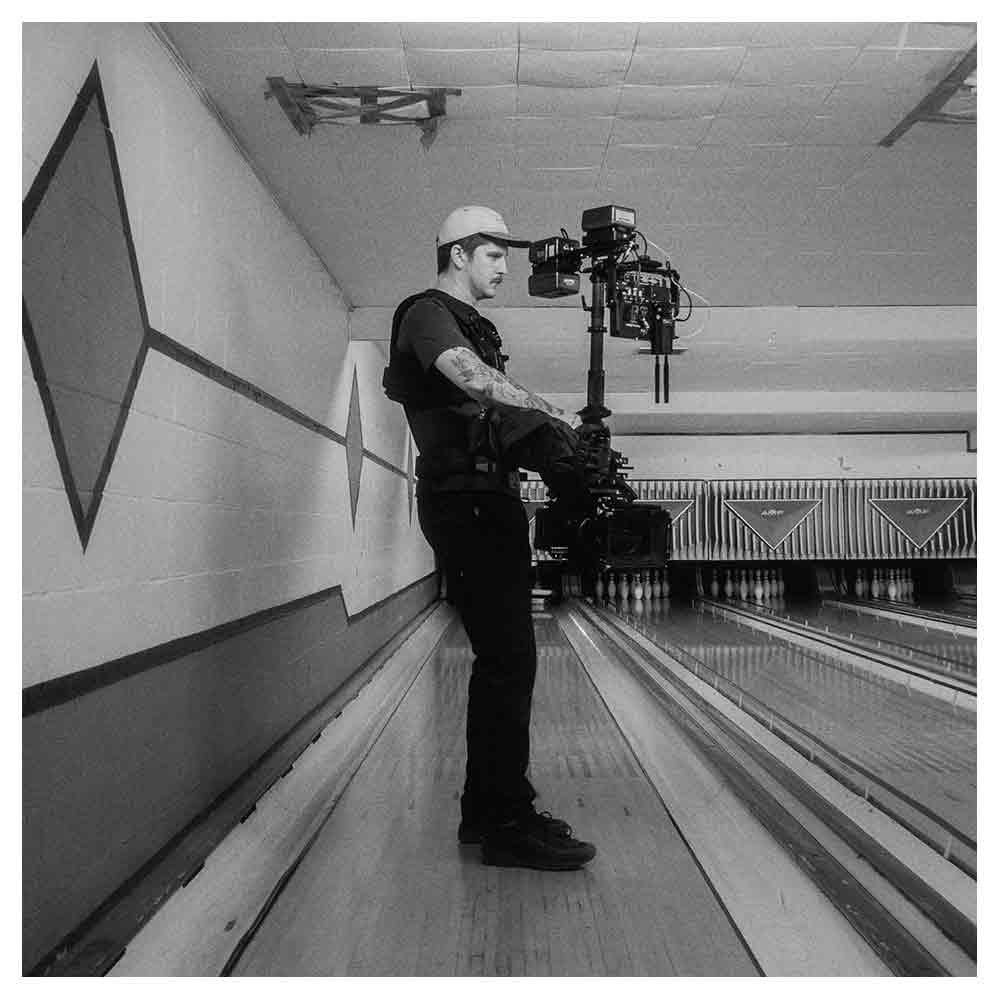How to Pitch for a Movie: Your Comprehensive Guide
Have you ever daydreamed, living in an entirely fictitious world inhabited by characters born from your imagination? Is this nebulous film idea of yours a traditional three-act structure horror film? A heartwarming true story?
Or maybe a post-apocalyptic feature film where the slightest noise instantly attracts dangerous creatures with ultra-sensitive hearing? If you've ever thought, "I've got a great film concept, " this guide is for you.
Here, you'll find everything you need to know about how to pitch for a movie, from creating a compelling pitch to understanding the intricacies of the film industry and the pitching process. So, grab your film idea, and let's get started!
The Art of the Movie Pitch
The movie pitch is your golden opportunity to sell your film idea to film producers, studio executives, or anyone in the entertainment industry who can help bring your project to life.
This is where you condense your entire script into a summary, presenting your unique elements enticingly and memorably.
The Art of pitching is often said to be like that of storytelling. It's not just about presenting your story in a condensed form; it's also about engaging your audience, capturing their imagination, and leaving them wanting more.
Standard Pitch
A standard pitch typically takes between 8-18 minutes and allows you to delve into the details of your story. You can discuss the main characters, the plot, and the unique elements that set your film apart. This could be in-person meetings or via video call.
Elevator Pitch
On the other hand, an elevator pitch is a condensed form of your pitch. Imagine you find yourself in an elevator with a studio executive.
You have 5-9 seconds to make them interested in your movie idea before the elevator reaches their floor. That's an elevator pitch - concise, persuasive, and gripping.
Consider this example:
"In a post-apocalyptic world where any noise attracts deadly creatures with ultra-sensitive hearing, a family struggles to survive in utter silence. The slightest whisper or the quietest noise instantly attracts these creatures. Just a small percentage of the human race survives. Only these survivors have learned to adapt to this silent world."
This pitch immediately sets up the world, the main characters, and the stakes, all in just a few sentences. It makes the listener want to know more, which is the whole point of a pitch.
The Pitching Process
Now that you understand a pitch, let's look at the pitching process. Here's a breakdown of the steps you need to take to deliver a successful pitch.
Know your story: This might seem obvious, but it is crucial. Know your account inside out, be able to explain it in detail, and also summarize it in a couple of sentences.
Prepare your pitch: Start with an elevator pitch. For a solid movie pitch, it helps to use a "this meets that" technique. For instance, you could say, "It's like Jaws in a dystopian world." Immediately, your listener can visualize a menacing great white shark in a dystopian setting, creating a unique and intriguing image in their mind.
Plan your visuals: For a pitch meeting or a film festival pitch fest, having some visual aids can make a difference. This is where pitch decks come into play. A pitch deck is a visual presentation that accompanies your verbal pitch. It's like a business plan for your film project, containing images, mood boards, character sketches, and more. These digital assets help your audience visualize your story.
Rehearse your pitch: The more you rehearse, the more confident you'll feel in your pitch meetings. This also ensures that you can comfortably fit your pitch within the time constraints.
Deliver your pitch: Whether in a pitch room or at pitch fests at film festivals, always exude confidence and passion. If you don't believe in your film, why should anyone else?
Finding Movie Pitching Opportunities
While movie pitching opportunities are abundant in the film industry, it's essential to approach the right ones. Film festivals are a great place to start. Many festivals host pitch fests, allowing filmmakers to present their movie ideas to industry professionals.
Writing competitions are another excellent way to get noticed. Not only can you win cash prizes, but these competitions can also provide exposure to industry professionals interested in your story.
However, remember that the entertainment industry does not welcome unsolicited pitches. Always ensure you have an invitation or appointment to pitch your movie idea.
Crafting a Compelling Pitch
Creating a compelling pitch requires more than just passion. Here are some key elements to consider:
Logline: An extended logline goes beyond simply stating the premise of your story. It dives deeper into the plot, touching on the major conflicts and character arcs. It gives your audience a more comprehensive view of your account in a condensed format.
Synopsis: This is the meat of your pitch. You go into detail about your story from beginning to end. Yes, this includes the final moment! There is no need for suspense here – your audience needs to know the entire story.
Characters: Discuss your main characters. What are their goals their motivations? Why should we care about them? Make your audience connect with your feelings.
Unique selling point: What sets your film apart from other films in its genre? Whether it's a fantastic story, a fresh perspective, or an exciting setting, highlight this in your pitch.
Visuals: Visuals are essential for in-person pitches. This could be a poster, a mood board, or any other visual that helps to illustrate your story.
By incorporating these elements into your pitch, you stand a better chance of capturing the interest of industry professionals and getting them excited about your project.
Remember, a great pitch doesn't just sell a story; it sells the potential of a story. So, whether you're pitching a feature film about an unstoppable great white shark terrorizing an island resort or a slasher flick set on a tourist island with a sinking boat and a killer shark, the pitch is about selling your vision.
It's about saying, "Here's an idea. Here's what it could become. Here's why you should care."
That's the secret to a successful pitch.
With these tips in hand, you're ready to step into the pitch room and make a solid movie pitch that will be hard to forget. The road to successful movie pitches may be fraught with challenges, but remember, even the most successful films start with an idea and a compelling pitch. Your dream film project might be one great pitch away from becoming a reality.
So take your story, your dystopian world, your unstoppable great white shark, or your creatures with sensitive hearing, and turn them into the next big thing in the film industry. After all, everyone's looking for the next great story – it could be yours.
FAQ: How to Pitch for a Movie
What is a movie pitch?
A movie pitch is a concise and compelling summary of your film idea. The goal of a movie pitch is to pique the interest of potential investors, studio executives, producers, and other industry professionals, making them want to know more about your project and possibly invest in it.
What's the difference between an elevator pitch and a standard pitch?
An elevator pitch is a brief (typically 30-60 seconds) summary of your movie, designed to be given in the time it takes for an elevator ride. On the other hand, a standard pitch is a more extended presentation, usually lasting between 8-18 minutes, where you can delve into the details of your film.
What are the essential elements of a successful movie pitch?
A successful movie pitch should include a compelling logline, a story summary, a description of your main characters, the unique selling point of your movie, and the film genre. Visual aids, such as pitch decks, can also be very effective.
How can I find opportunities to pitch my movie idea?
Film festivals often host pitch fests where filmmakers can pitch their ideas to industry professionals. Writing competitions and networking events are other excellent opportunities. Research each option thoroughly to ensure your project is a good fit.
What is a pitch deck?
A pitch deck is a visual presentation used during a pitch to help illustrate your story. It may include mood boards, storyboards, character sketches, location images, and any other visuals that could assist in conveying your film's tone, style, and narrative.
Can I send unsolicited pitches?
Generally, the film industry discourages unsolicited pitches for legal reasons. Always ensure you have an invitation or appointment to pitch your movie idea to avoid potential legal complications.
How can I make my movie pitch stand out?
The key to a standout pitch lies in the unique aspects of your story and how well you convey them. Be sure to communicate what makes your movie different from others in its genre. Moreover, express your passion for your project and inspire the same enthusiasm in your audience.
Should I reveal the ending of my movie in the pitch?
Yes, revealing the ending of your movie during the pitch is usually recommended. The potential investors need to understand the entire story, including how it ends, to decide whether to support the project.
What should I do if my pitch is rejected?
Rejection is a part of the pitching process. If your pitch is rejected, ask for feedback, learn from it, and improve it for the next opportunity. Remember, many successful films were rejected multiple times before finding a champion.
Can I pitch the same movie idea to different people?
Absolutely! It's encouraged to pitch your movie to as many relevant industry professionals as possible. The more pitches you do, the better you get at it, and the higher the chance of finding someone who connects with your story.






























